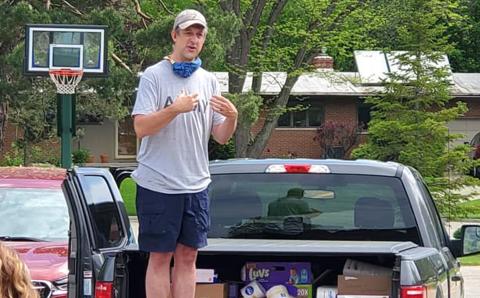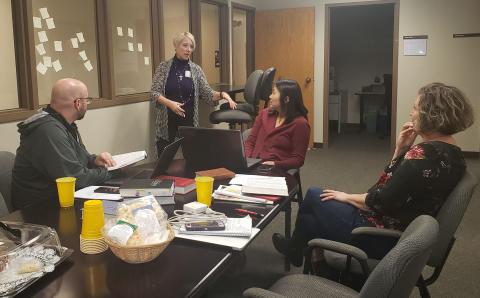In the midst of a pandemic and the greater call for social justice and equity, what does “missional” look like?
Our first response to this question might be characterized by a sense of needing to do more to or for. We think we need to get more people linked into our services, give more money, provide more social services, organize more food pantries, participate in more demonstrations and letter writing campaigns, and so on.
While some of these activities might be worthwhile endeavors, I’m wondering if the Spirit might be inviting us to take up a different posture while we’re sheltered in place. I wonder what we might be learning about living missionally in these unprecedented times.
One thing many are learning is that God really is at work in our neighborhoods and we did not know it (Gen. 28:16). As we are paying more attention to our neighbors, we are noticing that the kingdom of God is near—maybe even right next door!
So what if being missional begins with being where God has sent us to remain (our neighborhoods), paying attention to what God is already up to right where we live and joining in? What if joining the Spirit on God’s mission is about learning again how to listen and discern the kingdom of God come near and pointing to it rather than trying to build, develop, grow, advance, or expand it? This latter language is not used in Scripture in conjunction with our participation in the kingdom; rather, we are told the kingdom of God is like a mustard seed, yeast, and a wedding banquet, and we’ re invited to receive it, inherit it, and enter in as little children.
Luke 10:1-12 is a paradigmatic text in the missional movement because it articulates some counterintuitive practices for God’s people as Jesus’ sent ones. The 70, a number symbolizing all of us, are sent to Samaritan villages—not to do to or for, but as humble, vulnerable laborers and gracious guests who take nothing and depend on the hospitality of the other. They are reminded that it is God’s harvest, and they are to trust the Spirit to remain with them as they go. They are told that their witness begins with sharing peace or shalom.
About the Author
Karen Wilk is a Go Local catalyzer with Resonate Global Mission and Forge Canada. She is a pastor of Neighborhood Life (a home church movement) in Edmonton, Alta., where she also enjoys being a wife, mom, and neighbor.





